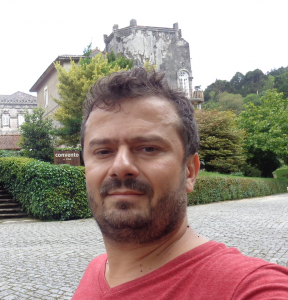
As we gear up for the ATA’s Annual Conference in Washington DC this October, let’s learn more about the speakers we’ll get to see during sessions associated with the Portuguese Language Division!
Below you will find a summary of their presentation(s), as well as a brief interview.
 I-12 Interpreting Meets Transcreation in the Portuguese Version of Interpreting: Getting It Right
I-12 Interpreting Meets Transcreation in the Portuguese Version of Interpreting: Getting It Right
Cristina Silva, CT | Giovana Boselli, CT | Marsel de Souza, CT
(Saturday, 3:30pm-4:30pm; All Levels; Presented in: English)
This session will discuss the creative process of creating a Brazilian Portuguese version of Interpreting: Getting It Right for U.S. and Brazilian markets. The speakers will focus on various aspects of their translation and adaptation efforts. The session is geared toward interpreters and translators alike, particularly those with an interest in transcreation. Examples of particularly challenging passages will be discussed (the excerpts shown will be back-translated into English). Based on a comparison between what needs to be conveyed to an American readership and what needs to be conveyed to a Brazilian readership, the speakers will discuss what would be appropriate for transcreation into other languages/cultures.
Marsel de Souza is a full-time interpreter and translator based in Brasília, Brazil. He has a BA in English>Portuguese translation from the University of Brasília and a certificate in advanced French studies from Alliance Française. He is an ATA-certified English>Portuguese translator and a member of AIIC and Abrates. He works primarily in Brasília, and has extensive experience across Brazil and in France, South Korea, the UK, the USA, and Portuguese-speaking countries in Africa.
How did you come up with the idea for your ATA58 session?
Transcreating the Getting It Right: Interpreting booklet was quite a daunting task, and it allowed for a meaningful exchange of ideas with my colleagues Cris Silva and Giovana Boselli. We thought it would be a good idea to share some of the challenges, dilemmas, and insights we had along the way.
What has been your biggest professional reward?
Nothing can be more rewarding than witnessing the true impact of your work in the real world. I feel a strong sense of accomplishment when I turn on the TV or read a magazine or newspaper and see the outcome of critical communications I helped facilitate.
What is the best trip you’ve ever been on?
I’ve been to very far-off countries such as Japan, Indonesia, and Australia, but my most memorable destination so far is just next door: Bolivia. Despite its flimsy infrastructure, the country is amazing in a number of ways. Its nature is particularly impressive, and I will never forget my visit to the Uyuni Salt Flats – you won’t find a more stunningly beautiful place in the world.
What is on your bookshelf?
Most fiction books on my shelf are science fiction works, and names you will commonly find are Isaac Asimov and Ray Bradbury. As far as nonfiction, most titles have to do with Travel & Tourism, Pop Culture, Geography and Futurology.
In forty years, what will you be nostalgic for?
By 2057, I will probably be running a bed & breakfast by the Lake Titicaca in the Bolivian town of Copacabana, and will be nostalgic for the time when human translators and interpreters were still in demand…
What is on your to-do list?
I’ve been meaning to learn how to play a musical instrument and to cook properly for at least twenty years now. Shame on me.
What is one thing people would be surprised to know about you?
There are nights when I become a completely different person – I walk out of the interpreting booth and into the DJ booth. I sometimes work as a DJ in local nightclubs. My repertoire includes rock and pop songs from the 1980s to the present.

Leave a Reply